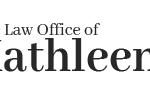
by Kathleen Lynch | Jul 15, 2014 | Entrepreneur, Inventor, Small Business, Trademark
The United States Patent and Trademark Office is hosting its 16th Annual Independent Inventor Conference on August 15-16, 2014 at its offices in Arlington Virginia. The conference will enable independent inventors and small business owners to learn about the patent system, as well as network with other entrepreneurs and inventors.
Senior level officials from the USPTO and others will present information on patents, trademarks, and other intellectual property (IP) matters. In addition, experienced business owners and inventors will relate their personal perspectives in bringing their dreams to market. Governmental and business development entities will discuss commercial best practices and the various resources offered by their organizations. Each attendee will have an exclusive opportunity to meet one-on-one with a USPTO expert or IP professional of his or her choice, as well as hear keynote addresses from major figures in the entrepreneurial world.
Attendees will also be able to choose from a variety of panels and breakout sessions that address specific intellectual property topics relevant to the modern inventor and small business owner. These sessions include hands-on workshops on patent and trademark application filing, prior art searching, and recent changes in legislation that affect business owners and inventors, among many other topics.
So if you are in the DC area, this looks like a great event for any entrepreneur or small business owner.

by Kathleen Lynch | Jul 7, 2014 | Business Name, Trademarks
A client of mine came to me recently lamenting the fact that someone in her industry was using an almost identical business name and service mark. She was given to understand that because the name is a family name, she was powerless to do anything about it. Not so.
Just because your name is McDonald, doesn’t mean you can sell hamburgers. And if your name is Guinness, you can’t open up a brewery. There are limits on your ability to use your name in connection with your business. These limits are established by the present landscape of what marks are being used. The test of infringement in trademark law is “likelihood of confusion.” Would a potential purchaser of goods or services be confused as to the source of those goods or services between your mark and your competitor’s mark? If the answer is yes, then there is a problem.
Trademarks, service marks and logos gain strength through use. Use of a mark is accomplished through sales of goods or services associated with that mark. It typically follows that the longer your business has been using a particular mark, the stronger the mark becomes.
In the case of my client, once she understood that she had significant strength in her mark, she was able to assert her rights against her competitor and force a change in the competitor’s mark. In addition, with her surname in use in her industry, her mark continues to gain strength.
If you are aware of any competitor’s mark that is similar, look at your options. Even if there are no problematic marks at present, keep an eye out for new marks and assert your rights where appropriate.






